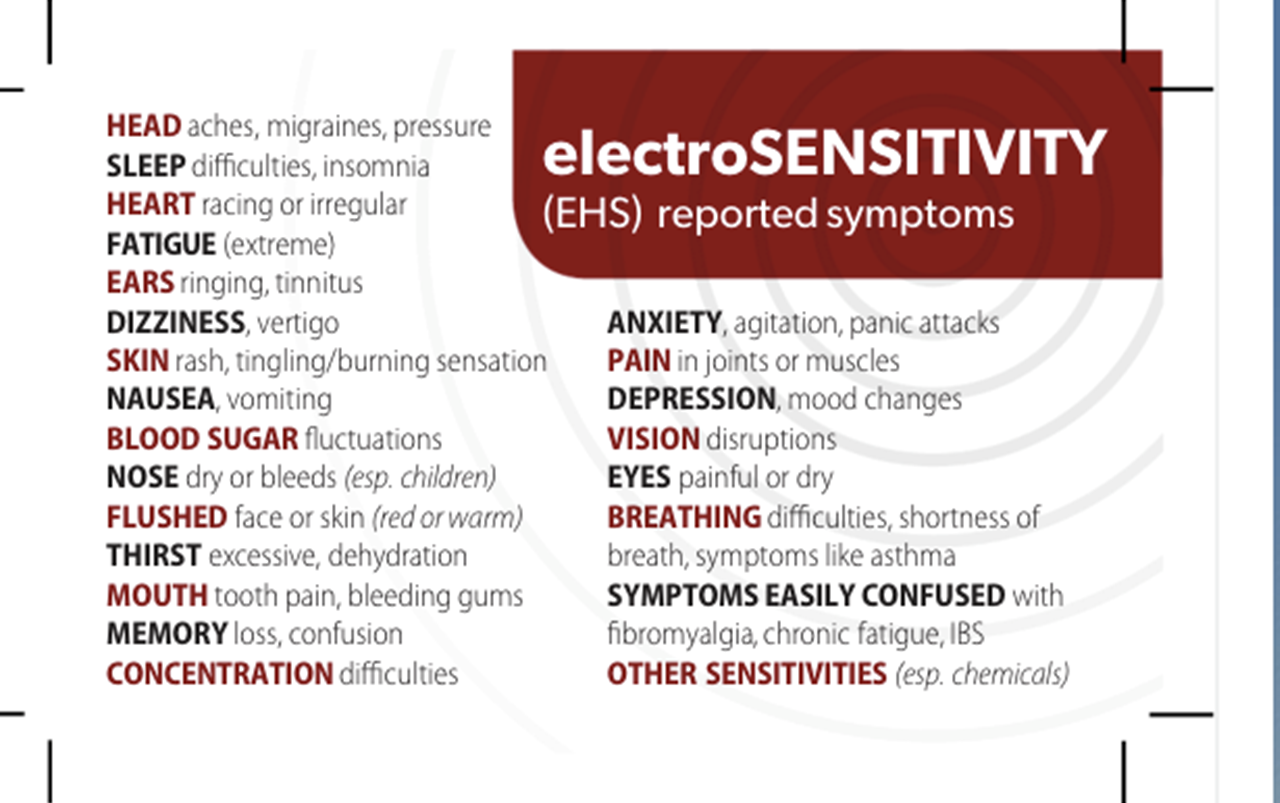Details of Electromagnetic Field Sensitivity

EMF sensitivity (EMF sensitivity) is a condition where an individual has a high sensitive to electromagnetic fields around him. This condition is not limited to situations where there is no electrical current, but it can affect people who have an open circuit or who are in contact with electromagnetic field for extended periods of time. The Environmental Health Center-Dallas has a comprehensive understanding of the reasons behind EMF sensitivities, and can assist patients in treating their symptoms. The center can perform tests to determine whether an individual is susceptible to EMF exposure. This can be accomplished using new technology that measures heart rate variability.
I.E.-EMF sensitivity is a sign of exposure to emf
Electromagnetic contamination and the resulting electromagnetic fields have been implicated in the onset of a number of ailments. The symptoms are often difficult to detect as some have reported a range of symptoms. These may be a result of pre-existing conditions or as a reaction to stress that is caused by exposure to high levels radiation fields. No matter the reason these symptoms can be debilitating for individuals who experience them. However, the scientific community is still not sure how common the IEI-EMF sensitivity syndrome and the extent to which it is widespread.
It is not a symptom of electrohypersensitivity
While the symptoms of electrohypersensitivity and EMF sensitivity are similar, there are some key differences. Electromagnetic hypersensitivity is frequently not understood, and the symptoms can vary widely. It is important to get a proper diagnosis to understand the causes behind the condition and the potential treatments.
It isn't a symptom of EHS
While EMF sensitivities are not an essential characteristic of EHS, it is often related to the disorder. In fact, some studies have suggested that the disorder is linked to genetics and environmental factors instead of a particular physical issue. Despite this, more research is needed to draw definitive conclusions.
It can be perplexing
The symptoms of EMF sensitivities can be confusing. The majority of EHS sufferers do not attribute their condition to any specific cause. electromagnetic hypersensitivity syndrome seek medical treatment however are unable to identify a cause for their condition. This raises suspicions that they may have any mental disorder of some kind that can lead to an increase in feelings of helplessness and anxiety.

It can be frightening
Electromagnetic fields or EMFs, can be terrifying. Some people report experiencing unpleasant symptoms when they are exposed to these electromagnetic fields, which are generated by devices such as Wi-Fi routers and mobile phones. The symptoms can range in severity, but in the most severe cases, people are forced to avoid the use of fluorescent lighting and electronic devices. In extreme cases, people might even be forced to leave the world of modernity and be isolated in communities that are known by the name of "EMF-free zone".
It is a good supplement to melatonin production
A single of the important hormones in the body Melatonin is a hormone that is produced by the pineal gland. https://etextpad.com/oorjkalzfs is implicated in many functional aspects of life, including circadian rhythm regulation. But emf sensitivity as a protection factor in the face of nonionizing electromagnetic field has been challenged, largely due to inconsistency between studies. Our understanding of this hormone's protective mechanisms is largely based on our understanding of the mechanism that it works to protect the body from the oxidative stress induced by exposure to RF/ELF.
It can help with changes to the autonomic nervous systems.
Several studies show that EMF sensitiveness can affect the nervous system of autonomic control. Patients with the condition can be affected by altered autonomic reactions and may experience digestive issues. Some patients have problems digesting food properly , or pass out when they eat a smaller portion. Some may notice changes in their body temperature , and suffer from heat intolerance. These issues are typically due to other health issues, such as diabetes.
